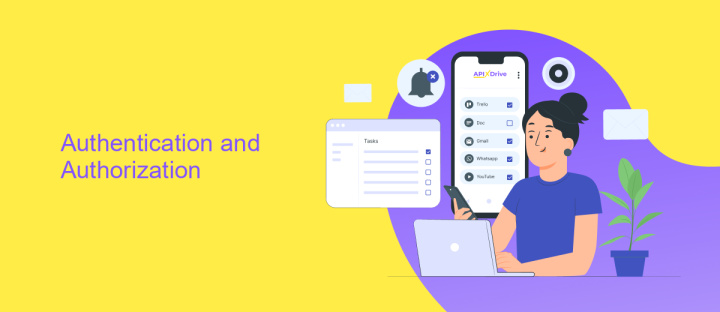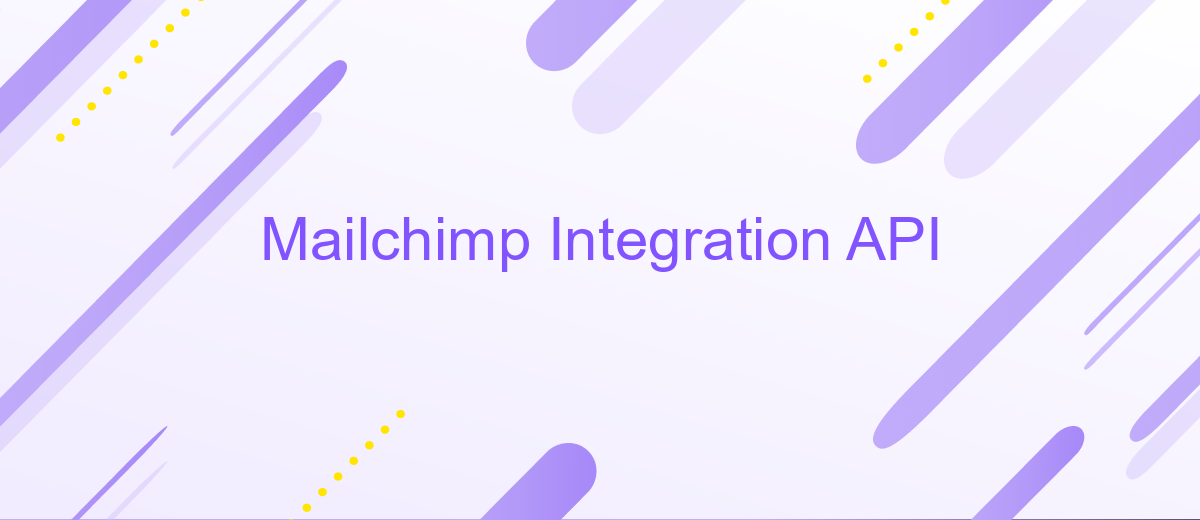Mailchimp Integration API
The Mailchimp Integration API offers businesses a seamless way to connect their applications with Mailchimp's powerful marketing platform. By leveraging this API, developers can automate email campaigns, manage subscriber lists, and access valuable analytics, all within their existing systems. This integration not only enhances workflow efficiency but also empowers businesses to deliver personalized marketing experiences, ultimately driving engagement and growth. Discover how the Mailchimp Integration API can transform your marketing strategy today.
Introduction to Mailchimp Integration API
The Mailchimp Integration API is a powerful tool that allows businesses to seamlessly connect their applications with Mailchimp, enhancing their marketing capabilities. This API provides a range of functionalities that enable users to automate email marketing campaigns, manage subscriber lists, and access detailed analytics, all from within their own platforms. By integrating with Mailchimp, businesses can streamline their marketing efforts, improve customer engagement, and drive growth.
- Automate email campaigns for targeted marketing.
- Manage and segment subscriber lists effectively.
- Access comprehensive analytics for data-driven decisions.
- Enhance customer engagement through personalized content.
- Integrate seamlessly with existing business applications.
With the Mailchimp Integration API, businesses can leverage the full potential of Mailchimp's marketing tools without leaving their own environments. This integration not only saves time but also provides a more cohesive and efficient workflow for marketing teams. Whether you're a small business owner or part of a large enterprise, the Mailchimp Integration API offers the flexibility and scalability needed to meet your marketing objectives and drive success.
Authentication and Authorization

To access the Mailchimp Integration API, authentication is crucial to ensure secure communication between your application and Mailchimp's servers. Mailchimp employs OAuth 2.0, a robust industry-standard protocol, for authentication. This process involves obtaining an access token by directing users to log in to their Mailchimp account and grant the necessary permissions. The access token must be included in the header of every API request to verify that the application has the right to access the specified resources. It is essential to handle this token securely and refresh it periodically to maintain seamless integration.
Authorization defines the scope of access your application has within the Mailchimp account. When requesting an access token, specify the scopes required for your application, such as managing contacts or campaigns. Mailchimp will prompt users to approve these scopes, ensuring that only authorized actions are performed. For those seeking simplified integration setup, services like ApiX-Drive can streamline the process by offering pre-built connectors and automated workflows, reducing the complexity of manual API integration. This ensures that even users with limited technical expertise can efficiently manage their Mailchimp integrations.
Key Features and Functionality

The Mailchimp Integration API offers a robust suite of tools designed to enhance marketing automation and streamline communication strategies. By leveraging this API, businesses can effortlessly connect their applications with Mailchimp to manage email campaigns, audience data, and analytics in a centralized platform. Its user-friendly interface and comprehensive documentation make it accessible for developers of all skill levels, ensuring seamless integration and efficient workflow management.
- Automated Campaign Management: Easily create, schedule, and manage email campaigns with advanced automation features.
- Audience Segmentation: Utilize powerful segmentation tools to target specific audience groups based on behavior and demographics.
- Real-time Analytics: Access detailed reports and insights to monitor campaign performance and optimize marketing strategies.
- Customizable Templates: Design personalized email templates to enhance brand identity and improve engagement rates.
- Data Synchronization: Ensure consistent and up-to-date information across platforms with reliable data synchronization capabilities.
In summary, the Mailchimp Integration API empowers businesses to optimize their marketing efforts through seamless integration and advanced functionalities. Whether automating campaigns or analyzing audience behavior, this API provides the essential tools needed to enhance communication and drive business growth. With its scalable solutions, companies can effectively engage with their audience and achieve their marketing objectives.
Practical Implementation and Code Examples

Integrating Mailchimp's API into your application can significantly enhance your email marketing capabilities. To begin, you'll need to create a Mailchimp account and generate an API key. This key will allow your application to communicate with Mailchimp's servers, enabling you to manage lists, add subscribers, and send campaigns programmatically.
Once you have your API key, you can start by installing the Mailchimp API client library for your preferred programming language. For example, if you're using Python, you can use the 'mailchimp3' library. With the library installed, authentication is straightforward—simply provide your API key when initializing the client. The following steps outline a basic integration:
- Set up your Mailchimp account and generate an API key.
- Install the appropriate Mailchimp API client library for your programming language.
- Initialize the client with your API key to authenticate requests.
- Use the client to perform actions like adding subscribers or creating campaigns.
By following these steps, you can seamlessly integrate Mailchimp into your application, automating email marketing tasks and enhancing user engagement. Remember to handle API responses and errors appropriately to ensure a robust implementation.


Troubleshooting and Best Practices
When encountering issues with the Mailchimp Integration API, ensure that your API key is valid and has the necessary permissions. Double-check endpoint URLs and request formats, as even minor discrepancies can cause failures. If you experience authentication errors, verify that your credentials are correctly encoded and included in your requests. Additionally, review Mailchimp's API documentation for any updates or changes that may affect your integration.
For best practices, regularly monitor your API usage to prevent exceeding rate limits. Implement error handling to gracefully manage unexpected responses. Consider using ApiX-Drive to streamline your integration process; it offers a user-friendly interface and pre-configured solutions to easily connect Mailchimp with other platforms. Keep your integration secure by using HTTPS and regularly rotating your API keys. Lastly, maintain clear documentation of your integration setup to facilitate troubleshooting and future updates.
FAQ
How do I integrate Mailchimp with my application using the API?
What are the common use cases for Mailchimp API integration?
How can I automate data transfer between Mailchimp and other platforms?
What should I do if I encounter an error while using the Mailchimp API?
Is it possible to integrate Mailchimp with non-technical platforms without coding?
Time is the most valuable resource in today's business realities. By eliminating the routine from work processes, you will get more opportunities to implement the most daring plans and ideas. Choose – you can continue to waste time, money and nerves on inefficient solutions, or you can use ApiX-Drive, automating work processes and achieving results with minimal investment of money, effort and human resources.

